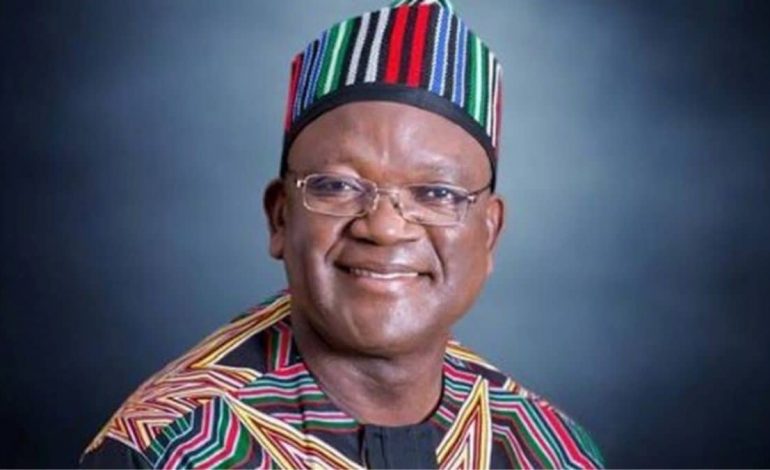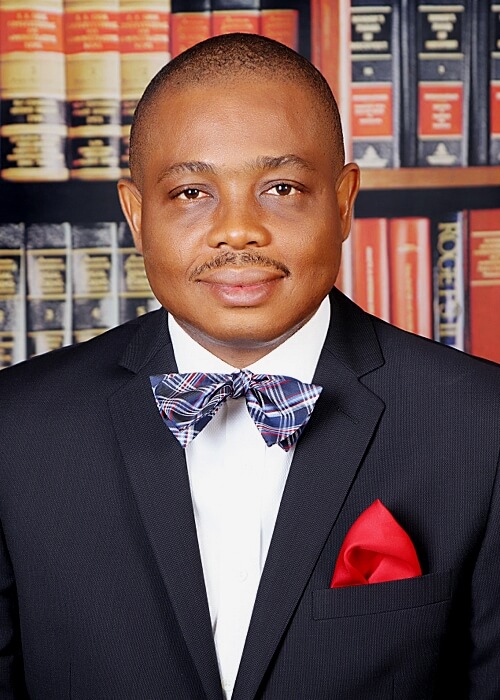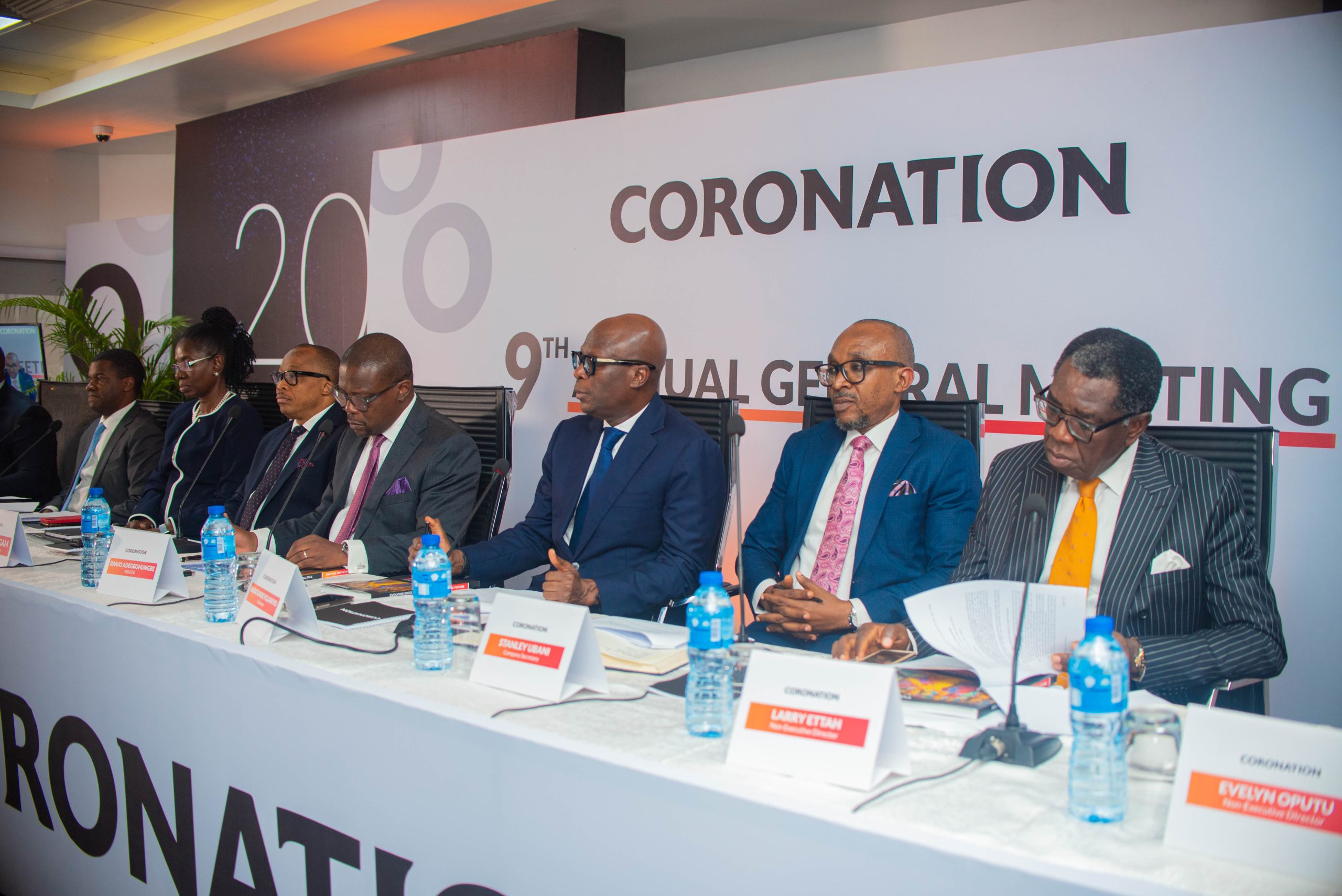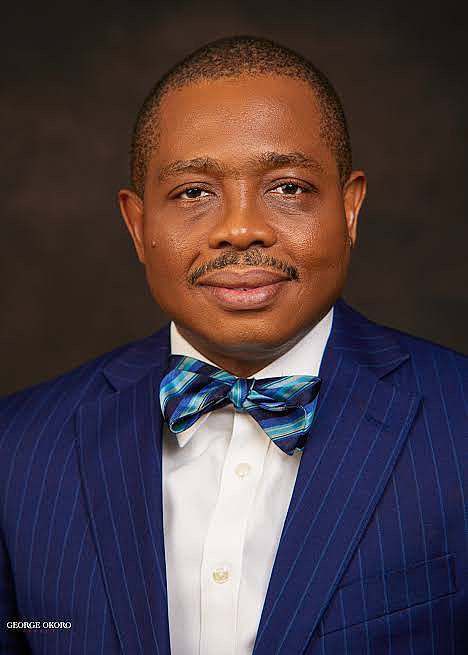My Life, Law – Wole Olanipekun, SAN
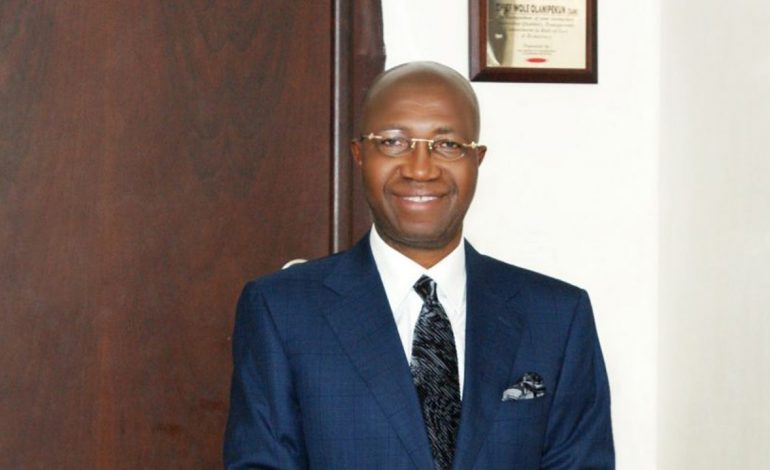
Different things shape the life of a human being. An encounter, an experience or even a meeting with another person may be the turning point in a man’s life. For Oluwole Oladapo Olanipekun SAN, that moment came rather early in his life. It was at the Ilesha Grammar School where he had gone for his Higher School Certificate (HSC). It was in the days of the regional governments when the school was one of the top three in the whole of Western Region. The student population then was about 1000! Of course, the Western Region then consists of today’s balkanized Ogun, Oyo, Osun, Ondo, Ekiti states.
Despite that it was a secondary school, Ilesha Grammar School then had a Student’s, Representative’s Council (SRC) and traditionally, the Senior Prefect is the automatic chairman. But in 1971, the students strangely insisted to elect their own representatives.
Although the school had its Prefects, appointed by the Principal, it was, however, still a shock to Chief Oni (now retired), the Principal at the time. Just like the Israelites, the students insisted on having their own king.
Curiously, Chief Oni allowed the students to have their way. To his surprise, the students voted for a person who was not even a Prefect as the chairman of the SRC! That person was Wole Olanipekun, a young teen from the rustic Ikere-Ekiti, in the Ekiti Division of the Western Region. Ilesha, the host town of the school, and whose name the school bears, is located in Ijesha division of the same region. Even in those days, it was quite a trip for a young boy to undertake in search of the Golden Fleece.
Those who know young Wole from home were not surprised though. Before the HSC, he was the Senior Prefect of his Alma Mater, Amoye Grammar School, Ikere -Ekiti two years earlier. As the Senior Prefect, he banned the common culture of cane which was rampant in schools then. Olanipekun saw through the wickedness of senior students using the cane on the junior ones and he could not just stand it. In those days, “365 days is not a joke” was a common saying among seniors who used the simple sentence to remind junior ones of not only their seniority, but also of their supremacy. Thus when the senior prefect banned the use of the cane, the junior ones were filled with joy.
This disposition naturally allowed the young ones to flow with him. They see him as the loving brother who is always there to protect them.
Forty-one years after, the story has not changed, rather, it has assumed a national dimension. People naturally flow to him and today, and thousands of Nigerians see him as a role model and mentor.
Wole Olanipekun went ahead to attend the University of Lagos where he studied law. Law to him is the Ministry God has given to him to make an impact and better the lot of the people.
Olanipekun did not have the proverbial silver spoon while growing up. A typical Ekiti boy, his parents who are agrarians could barely get enough to send him to school. This was, however, done in the atmosphere of love, devotion and sacrifices; values that has today become virtues for him.
Asked what motivates him, he said: “A lot of factors have come to play. First and foremost, my background as a Christian, someone from Ekiti who was not born with the proverbial golden spoon, someone who has education and all my life I have always hated cheating and injustice. Again, my reading of the biography of my seniors in this profession has also influenced me. When I ta1k of seniors, I am not restricting seniors to Nigeria, seniors all over the world. What were lawyers doing, what did they achieve? The Gandhis, Clintons, Mandelas, Sapara Williams, Rotimi Williams, Gani Fawehinmis, Akinjides, and Afe Babalolas of this world;
“My study of jurisprudence, particularly, from the socialist angle is also a factor. The summary of the thinking, the summary of the reason, and the summary of the postulation of the socialist school is that a lawyer is a socio engineer. Lawyers right wrongs. We bring succour to the pains of those that are hurt, we bring peace, and we are instrument of harmony. When you look at the Bible, law is recognized as a profession; God Himself is a law giver. A good number of people in the Bible are lawyers. Talk of Moses, Gamaliel, Paul the Apostle. Forget about some places where lawyers are condemned in the Bible. When you look at the Bible in the book of Titus 3 vs. 13, Paul the Apostle asked for a particular lawyer and directed that ‘nothing be wanting unto them.”
Olanipekun believes that law as a noble profession should be used to build and develop the society. “Of all the professions in the world, there is no one that influences the human behaviour, the human interaction, the integration, the building of nations, the emancipation of the people like the legal profession. I have come to the conclusion that any lawyer who practises law making money without contributing to the upliftment of the society, to his immediate environment, such a lawyer would have lived a void life, a life of minus, a life of substitution and I dare say, it would have been better if that lawyer have not been born,” he said.
Continuing, he added: “So lawyers are not agitators. Our profession is conservative but all the same time revolutionary. Whatever contribution one has made to his immediate environment, to his country, to my home town, state and fellow countrymen, I have been motivated by the combination of factors that I have mentioned.”
With this mindset, it becomes clear where Olanipekun was coming from. Like the late sage, Chief Obafemi Awolowo said, it is only the deep that calls unto the deep. Olanipekun is deeply spiritual; he imbibes the teaching of the Christian faith and the accompanying discipline. Little wonder then that he was called upon by those who know his values; they prevailed upon him to contest for the Presidency of the profession he deeply love, the Nigerian Bar Association (NBA) in 2002.
This came at the most critical time for the association and the nation. As a background, the life of the NBA and Nigeria have always intertwined. One always affected the other. For instance, in 1992, the NBA suffered a crisis that left it comatose until 1998. That year, the Ikeja branch of the association, under the leadership of Mr. Dosu Oguniyi, rallied round other branches to bring back the association. Chief Olanipekun participated actively in the restoration.
It should be recalled that in 1993, a year after the NBA crisis began; the most credible election ever in the country took place and was presumably won by the late business mogul, Bashorun MKO Abiola.
Unfortunately however, that election was nullified by the regime of Gen. Ibrahim Babangida. This led to chaos and the logjam was only resolved in 1998, the same year that the NBA resolved its own crisis. T. J. Okpoko (SAN) was elected president and was in office until August 2000. Okpoko was succeeded by O. C. J. Okocha, who served between 2000 and 2002.
In August 2002, Chief Olanipekun became the President of the NBA and was in office until August 2004, a period that has remained a watershed in the history of the Bar comparable only to the golden era of the late Alao Aka-Bashorun. His school mates in 1971, his professional colleagues voted en-mase for him. He said of his election: “When I was contesting for the president of the NBA, I knew what I was bargaining for. I had a vision and an ambition. I wanted my regime to be a watershed. I wanted to create some precedent; some people did not know me well. They didn’t know my background. In fact, a good number of people supported me, two, three months when I got to the office. They said I was too hot and they never knew. I made up my mind that I would not abuse the leaders of this country but I would hold them responsible for their action. That the NBA must champion a revolution, we are going to be the lights that foray into the darkest places of this country and we are going to fight bad governance. Naturally, I knew the government would not come to me to patronize me. I also made up my mind about honesty in the NBA. I asked myself pertinent question; if I go to the NBA to steal, to pollute the till, to collapse the treasury and the revenue, how would I open my mouth and criticize the government on corruption?
For daring to criticize the then Olusegun Obasanjo’s government and the ills in the society, Olanipekun indeed paid a price. He said: “Government then saw me and NBA as enemy number one. I had very naughty experiences even with President Obasanjo. I respected and still respect him because he is my elder but he didn’t like my style, he didn’t like the NBA under my leadership. Even at a public function, he virtually embarrassed me when he greeted other people and he didn’t greet me. But I went to him and said Mr. President good afternoon.
Every other person was there. It was the conference of the Nigeria Labour Congress (NLC) when (Adams) Oshiomhole was seeking re-election. I was there as one of the VIPs and he came to declare the convention open. So, I made up my mind that I would not hinder, not that I hated them, not that I even needed money but I wanted the NBA to be independent of powers, and principalities as the case may be.”
Speaking further on his experiences during this political dispensation, Olanipekun said: “I have been hunted, harassed and victimized. First and foremost, when Chris Ngige was abducted, I came out heavily as the President of NBA. I said it was barbaric and brutish and uncivilized. When the Igwe couples were slaughtered like chicken on the street of Onitsha, I received threat messages, treat telephone calls, people asking for where I was. During the Ngige time, I got letters in my office, saying that I dared not go out that they would eliminate me. I sent some of these letters to the police. Fortunately, my own very good brother, Sunday Ehindero was Inspector General of Police then but nothing was done.
From the moment he became the President of Bar, Olanipekun became practically a man of the people. Rather than taking sides with the government, he chose to side with the people via state governments, fighting their battle through the courts. From Kastina to Abia, Lagos to Kano, Olanipekun took sides with the people to battle the lopsided federalism being practised in Nigeria. He challenged the enormous powers of the Federal Government in the federal arrangement. What he lost in monetary terms, he gained in terms of popularity and respect from Nigerias who are grateful for having a people’s advocate.
Is he happy at the way things are in his country in the year of her jubilee? also say’s Olanipekun. “I will be a selfish man, a self-contented person and personality if I answer that question in the affirmative. There is a proverb in my place, Ekiti that Olowokan larin otosi mefa, ti olowo o ba sora, ise a di meje”. It is only if I am someone without a conscience that I would be rejoicing that I have made it, that I am rich in Nigeria even in the midst of poverty, right, left, backward and forward. All of us are swinging in an ocean of poverty. I am also not happy that even as at now this is where our democracy is. I am not happy at the state of corruption. I am not happy with the state of our education, with the state of our Medicare. I am not happy with the conditions of our roads, I am not happy with politics. I am not happy at the way we govern ourselves.”
He maintained a high level of discipline at the University of Ibadan where he was the Pro-Chancellor. “The late President Yar’Adua appointed me as Pro-Chancellor and Chairman of Council of the University of Ibadan. I told them at my first meeting that I am not a retiree. I man a full time legal practitioner. I know my duties as a pro chancellor and chairman of the council. I am not going to poke my nose into your affairs but there must not be corruption in the university and I will live by example. I will not take kobo as allowance; rather I will give from my pocket to you. All my allowances, combined them together, collect them into a special fund, for scholarship because that is my ambition, my passion,” he said. He believes that Nigerian lawyers must do more for the emancipation of the country. He also set a code he believes lawyers must adhere to.
“What a lawyer lives for according to Sapara Williams is to fight for the freedom, for the emancipation of the people, for their independence, to declare their jubilee. I do believe that a lawyer must not fail to act and close his eyes when the treasury is going down the drain. As much as possible we have been intervening, interjecting and intercepting in the affairs of this country. I also believe that when you do your work as a lawyer, do it with the fear of God because you occupied a vintage opposition. Don’t do it to bring down the system. What do I mean? We are in a corrupt environment, lawyers must not instigate, aid or abet or sponsor or connive with corruption. A lawyer that reads the status that God put before us must not offer bribe, must not boast to client that he knows judges, that when he is charging his fees that he is going to give XY thousands or millions to judges. Any lawyer who does that will face judgment of God.
“I believe with my background that when God on the Day of Judgement is judging every other person, He is going to judge lawyers and judges twice. God says judge not so that you will not be judged. We are holding the most powerful instrument, justice in trust for God because He is the only righteous judge.
“When people ask me whether I am a Pastor, I tell them that every one of us who is a Christian is also a pastor. Every one of us occupies a ministry. I take my own profession as my own calling, my own ministry. When I am in court I see that place as my pulpit. When I stand there I see it as my sacred ground. I must not tell lies; I must not mislead but then I must ensure that the integrity of the court is protected while I also advocate the case of my clients to the best of my ability. We have very few role models in Nigeria today.
The values, the congregation of role models is fading out, it is decreasing in geometrical proportion; and as much as possible, we must encourage the younger ones. Let them appreciate that life is not meant for rogues, robbers, 419 people and with honesty, with your trust in God, he will bless you,” he opined.
Olanipekun believes that the government should protect lives and property of the citizens as enshrined in the constitution because the resources belong to all of us. “The resources are for the common good of all of us. So, every one of us should have an interest in good governance. How can anybody of my status say that he is happy with Nigeria of today, with no water? Have you read the poem, “water, water, water everywhere, not a drop to drink?” So, it is getting to a stage that the middle class will be wiped off. Chaucer was saying, “If gold rust, what will happen to iron?” So if the middle class is no longer in existence, what will happen to the poor?” Olanipekun asked.
For all his effort on the Nigerian state, the reward of God has started to come for the foremost lawyer. All his children-four of them followed his footsteps and became lawyers. Two are Senior Advocates. Olanipekun has been appointed the Chancellor of Ekiti State University of Education by Governor John Fayemi Kayode of Ekiti State.

